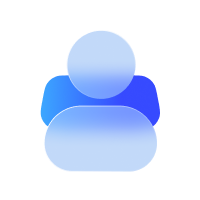
Automated tracking of formal disputes with the Bonita platform

Public Sector
,

500 employees

Mexico
,
In brief.
Company
Use cases
No items found.
Automated tracking of formal disputes based on Bonita.

Tribunal de lo Contencioso Administrativo Federal
The Tribunal Contencioso Administrativo del Distrito Federal (TCADF) is the court in the jurisdiction of Mexico City with full autonomy to settle disputes between individuals and the employees of Mexico City's Public Administration. Funded under the budget public, the court hears over 12 thousand disputes involving nearly 500 employees each year.
Objectives
In order to provide justice promptly and expeditiously, the Tribunal Contencioso Administrativo del Distrito Federal (TCADF) needed to implement a solution to support the administrative and functional operations of the Court.
They were looking to upgrade the existing tools, while keeping their data integration, and wanted to better manage the required legal proceedings for lawsuits brought before the court.
With over 12,000 disputes a year brought before the TCADF, and with the process of a life cycle of a lawsuit filed in the court done almost entirely by hand, there was loss of data, delayed proceedings, and long response times which were often outside legal limits. The only way to achieve better management was with the implementation of a BPM solution.
Challenges
Various methodologies where proposed to give the TCADF the support they needed. The first solution applied was a CRM by SAP.
The project began by diagramming all the processes involved with a lawsuit in the CRM. However, the many different types of business rules around a dispute in this type of court made it impossible to successfully implement with a CRM.
This is when Bonita came into play. The features and flexibility that Bonita offers proved to be the right tool for the TCADF.
Benefits
After the BPM process implementation went into production, the TCADF saw
- a reduction in the operational court costs,
- better storage, organization and usage of statistical information related to the performance of the court,
- accessible management indexes and operational reports
- a relevant repository of sentences, and criteria that will enable judges to consult previous decisions and draft judgments
- standardized and centralized catalogs attached to definitions of the legal framework
- centralized and standardized templates used to generate agreements, statements, notices and procedures by the court
- on-line monitoring of all stages of the trial process
- real-time status of a lawsuit
- on-line repository and documentation issued by the Court for each of their trials
"The Trials Digital System is a useful tool, not only for the times we live in, but will also benefit future generations."
Juez Yasmín Esquivel Mossa, President TCADF
Ready to simplify your processes with Bonita?
Every business deserves a solution that accelerates its success. With Bonitasoft, simplify, automate and transform your business processes. Take the first step towards optimal performance today. Let's talk about it?









